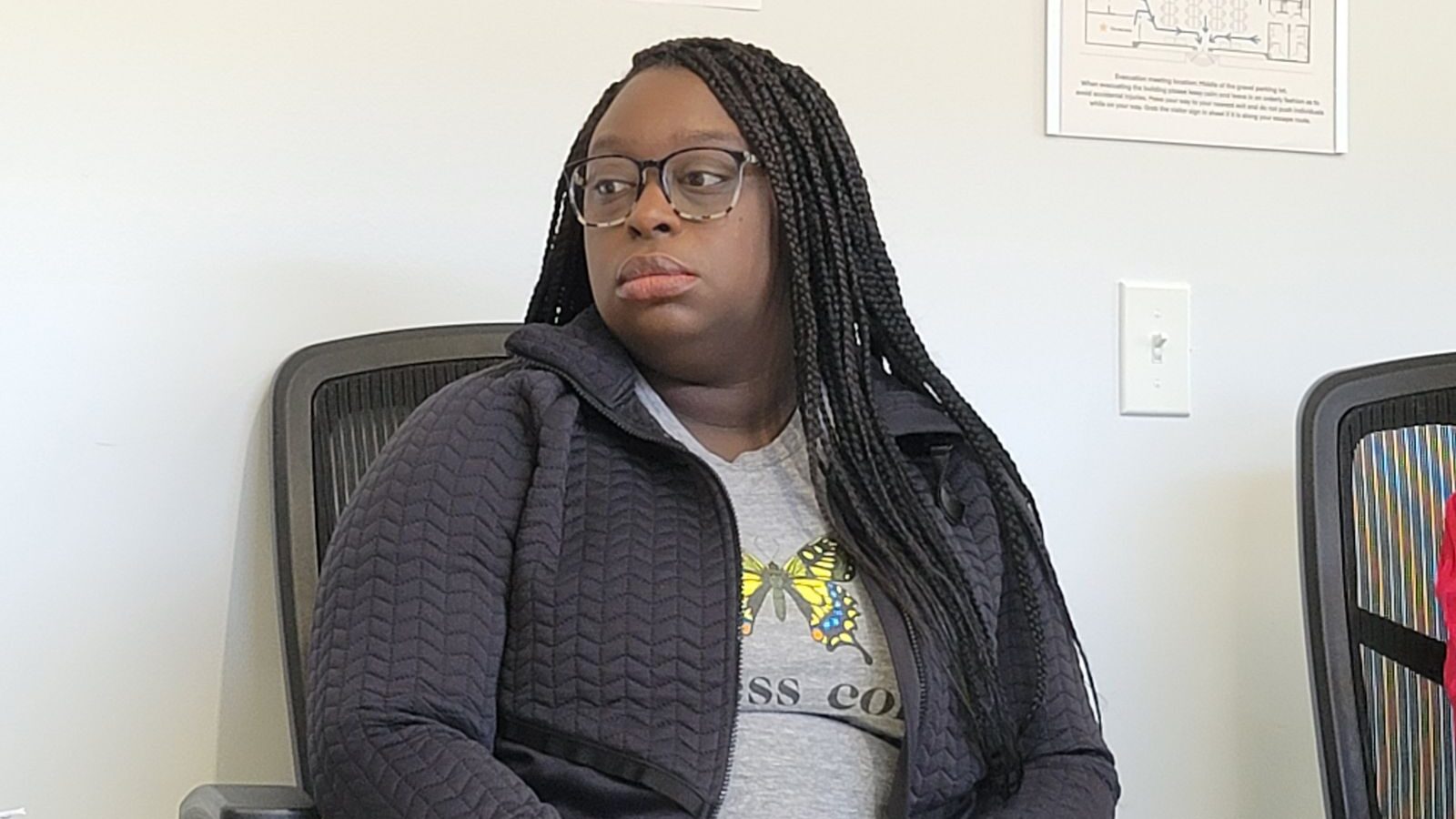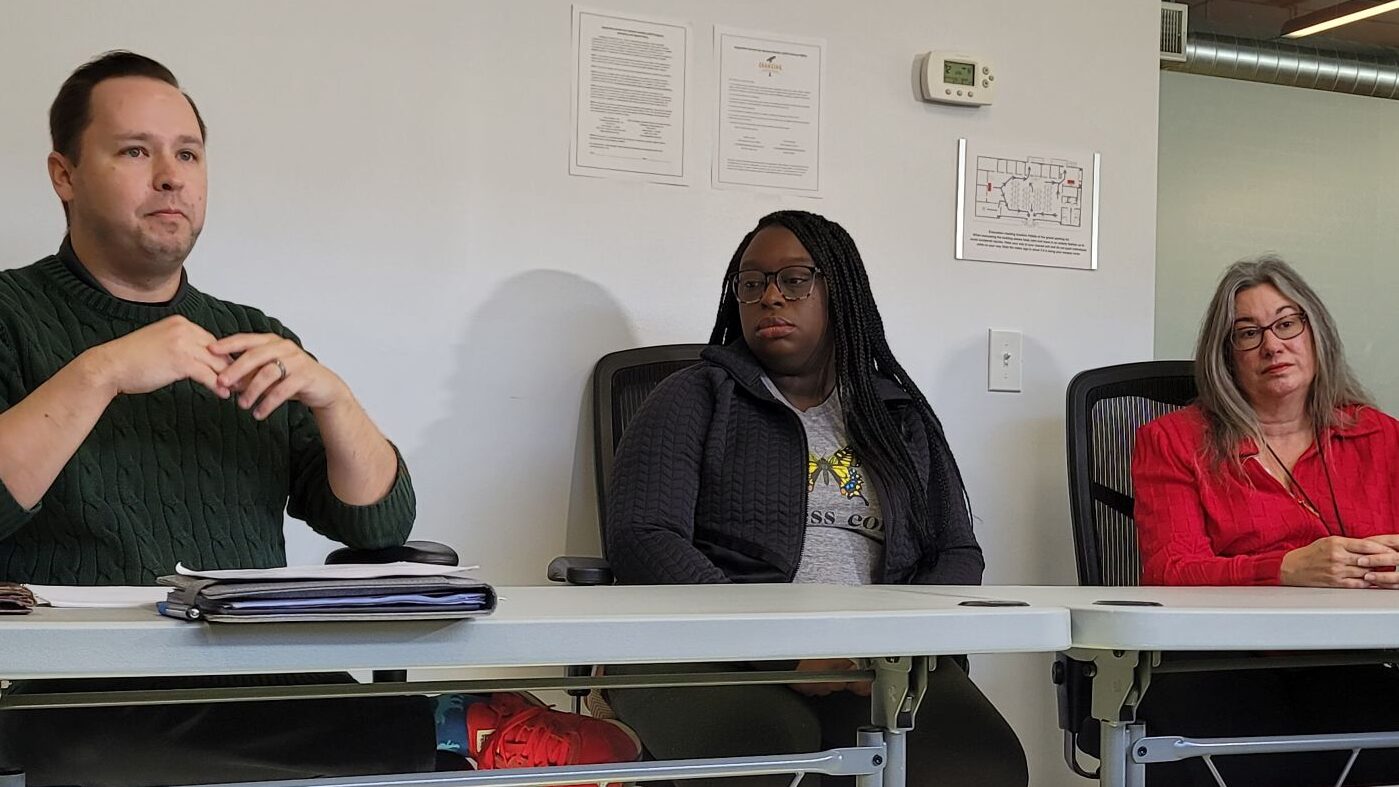Duval County eviction filings are on track to exceed 14,000 this year. In this third part in a series on evictions, Jacksonville Today looks at a potential new diversion program to keep the number down.
Debbie-Lynn Hamm hit a rough patch this year. A mother of four young boys, the former Marine Corps servicewoman says when she lost her job as a corrections officer back in August, getting behind in her finances led to an eviction notice in September.
“When you get those notices, I think that you just kind of get a numb feeling and you kind of shut down,” Hamm says. “It’s hard to think because you’re just scared.”
Hamm eventually found help to stem the eviction proceeding through local nonprofit Changing Homelessness and a Veterans Affairs program that the organization administers, but she says the court notice hit her initially as a state of depression. But court deadlines couldn’t wait as she reflected on her life.
“I have been working hard, you know? I served my country. I got honorably discharged,” says Hamm. “I have all these skills and everything. What did I do wrong?”

Hamm lives just outside of Jacksonville in Baker County, where eviction filings have been a drop in the bucket compared to Duval — just 30 eviction notices were filed in the Baker court system from January through September this year, according to the University of Florida’s Shimberg Center for Housing Studies. That’s compared to at least 11,783 in Duval.
But legislation that heads to the Jacksonville City Council on Tuesday could soon begin helping people in Hamm’s situation in Duval County, in part, by providing them more information about local eviction prevention resources as soon as they get their court notice.
If approved, the legislation would create eviction diversion programs with $1 million in city grant funding. Plus, among other eviction assistance, it would provide information on where to turn for help within the eviction court documents themselves, so people could seek assistance more quickly.
Hamm says that information at that moment could have helped her.
“Then you can just look at that notice and just call and start making plans, start making things happen — that would have been great,” she says.
A partnership between Legal Aid, courts, nonprofits
Eviction cases rapidly move through the court process. Tenants faced with a debt-based eviction notice are required to file an answer to the summons within five business days and deposit rent with the court system.
The proposed Duval diversion program aims to stem not only the shock factor but also the eviction rate.
“It is imperative that those tenants eligible for eviction diversion are identified quickly,” according to city documents filed with the legislation. “One strategy is to provide eviction diversion information with the summons. This information will include eligibility requirements and steps the tenant should take to contact the facilitator. This will allow quicker identification of eviction cases that can be fast tracked to access available housing assistance and avoid eviction.”
The program would mete out emergency rental assistance that isn’t tied to federal COVID relief, as previous grant programs have been, says Jacksonville Affordable Housing and Community Development Director Joshua Hicks.
“We’ve had about $70 or $80 million come into the local community over the last few years,” Hicks says, “[but] you had to be impacted by COVID in order to apply for that rental assistance.”
He says the emergency rental assistance would be paired with help navigating the court process, case management and assistance from Jacksonville Area Legal Aid (JALA) “so that you do not become a number in terms of the homeless population.”
The grant funding would create a partnership between the United Way of Northeast Florida, Jewish Family and Community Services, JALA and the Fourth Judicial Circuit Court. JALA would serve as the liaison between the court and nonprofits, which would refer clients facing eviction.
“Once the facilitator identifies a tenant who can pay future rent, that tenant is connected to local agencies to provide essential and ongoing housing assistance to the community that includes financial assistance, financial counseling, job training, housing relocation assistance, legal aid, negotiating with landlords, and social services,” city documents state.
The document calls the court’s participation “vital to the success of eviction diversion.”
In an email to Jacksonville Today, Jim Kowalski, JALA CEO, calls the program “a game-changer” for renters in Jacksonville.
“During the pandemic, numerous municipalities and counties learned that the partnership of rental assistance programs and civil legal aid lawyers was an efficient, lower-cost way to keep families stably housed and avoid homelessness,” Kowalski says. “We are very excited to join with our partners at United Way and the Duval County Courthouse Court Administration to bring eviction diversion to Jacksonville and to show how cost-effective a program like this can be when compared to the often overwhelming and very fast eviction process.”
He said JALA is ready to start as soon as the funding is approved. The grant timeline would begin Jan. 1 and run through 2024.
Rapid information vital to deter evictions
In Hamm’s case, she says she was lucky to already know about Changing Homelessness through an American Legion veteran in Baker County who shared a list of resources. Changing Homelessness, a Jacksonville-based nonprofit that has administered an eviction prevention program for the VA since 2012, provides funding for rapid rehousing — for people who are either recently homeless or facing imminent eviction. Hamm credits the program for keeping her and her children in their home.
Hamm and her family had lived in their apartment since June 1 when, on September 6, she received the notice that she had three days to pay $1,825 plus late fees to her Macclenny landlord or leave the premises. Hamm was $3,650 behind in payments at the time of the notice, but the roughly $2,000 was the minimum payment to stay in their home, according to court documents. Overwhelmed by the notice and the amount she would have to pay, she says she began looking into homeless shelters. It was the middle of summer and too hot to live in her vehicle.
“That just scared me half to death,” Hamm says, “that we might be living in homeless shelters.”
She says it all happened quickly.
“Once you owe one month of rent, it just slips off really, really fast, especially with rent prices,” she says. “I was just trying to find a job and maybe see if I can try to catch up on my own.”
Dawn Gilman, CEO of Changing Homelessness, says Hamm is one of many local veterans who are receiving the same kind of help, and many of them are retired.
“They are on fixed incomes. If rents go up, they do not have the ability to increase their income, so we’re able to fill in that gap for a number of years, so they can remain in their homes,” Gilman says.
And, she says, while other resources are available if her organization can’t help an individual, navigating those resources can be overwhelming in itself.

Hicks, with the city of Jacksonville, agrees. Different agencies and city services help with different elements of eviction diversion, homelessness and rental, utility and food assistance, he says.
“We’re working on creating a resource hub, to sort of funnel all these programs — especially these new programs that we’re going to have,” says Hicks. “People are going to need to find out about them really quickly. So putting them on the city website, making sure there’s a page that lists out all of our housing and homelessness options, and programs that can support the community, we’re working on that.”
People who are facing an eviction notice can always call 2-1-1 and the United Way will help route them to an appropriate agency or service for help, as well.
Plus, another batch of assistance programs could be coming online after the City Council meeting Tuesday night.
There are roofing assistance programs to keep homeowners from becoming homeless after insurance loss and more funding for anti-homelessness initiatives. There is a separate $2 million emergency rental assistance and eviction diversion/prevention fund in the mayor’s transition budget. Plus, other funds started by the City Council, mayor and the Council president.
“One is a diversion homelessness fund, which will go toward paying up to $1,500 per individual,” Hicks says. “If you are facing a problem where you’re having to pay for food, healthcare or medicine, you know, grocery groceries or your gas bill, and you’re making that decision between paying for rent or paying for these basic needs in life.”
He says short-term programs will help, but the only way “to get ourselves out of it” is to devote resources to long-term housing “inventory development.”
“Not just attainable, middle-, moderate-income housing, affordable housing, but also low-income housing,” Hicks says. “(We’re) working with the Jacksonville Housing Authority and other groups to build that inventory of housing that we need. But what we can do as a community, in the short term, is make sure these programs are in place and expanded in the years ahead to support the community while we’re playing catch up with the inventory that we need.”
Previous stories in this series: With Duval evictions on the rise, the evicted often face a more pricey path forward and More Jacksonville tenants are signing out-of-reach leases, case workers say







